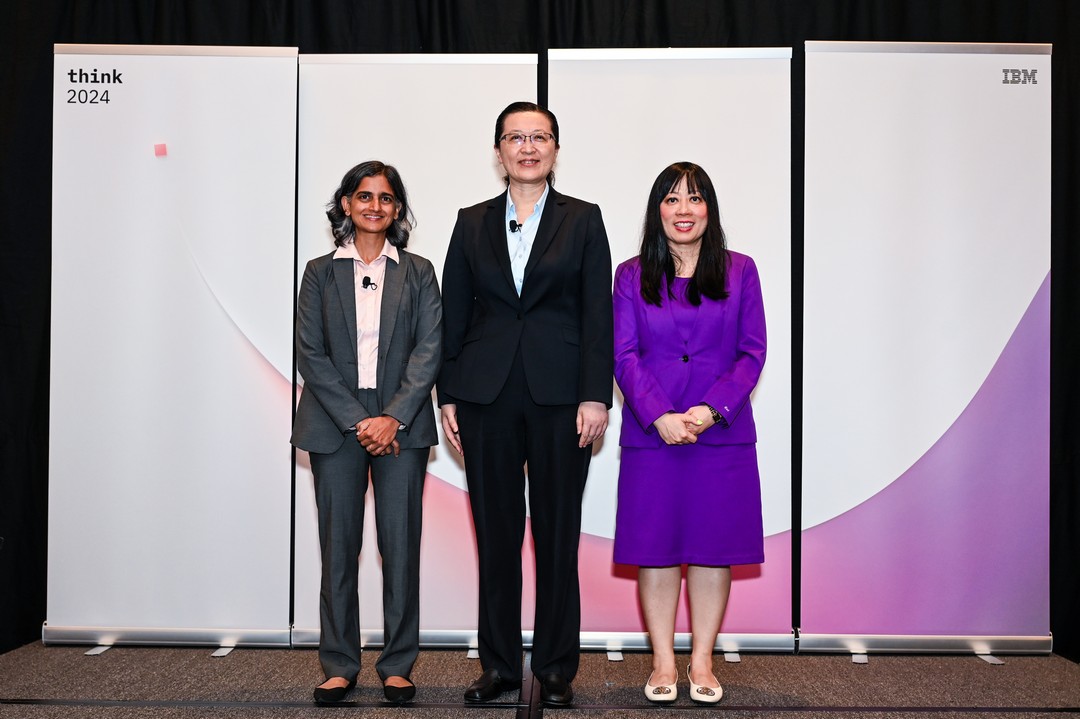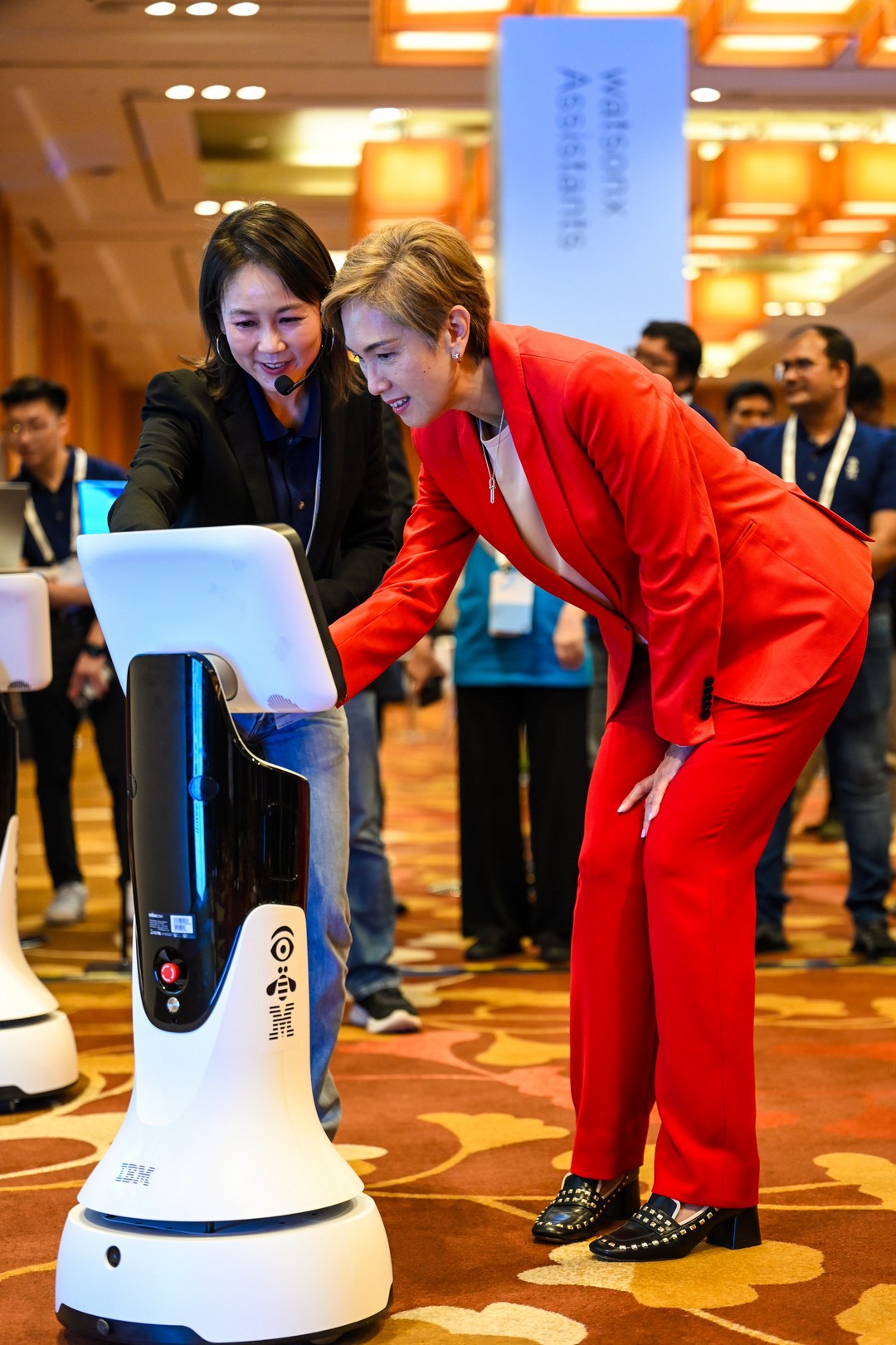
Professor Liu Bin, deputy president for research and technology at NUS;
and Catherine Lian, general manager for IBM Asean, at IBM Think 2024 in Singapore. PHOTO: IBM
In a bold move to elevate AI research and innovation in Singapore, the National University of Singapore (NUS) School of Computing will unveil a cutting-edge AI research centre in 2025.
A collaborative effort between IBM and NUS, the centre will focus on green AI computing and AI safety.
For the first time, IBM’s full stack AI infrastructure will be deployed on a university campus in the region. This system encompasses the full range of software and technology required critical to build, test, and deploy AI applications for advanced research and development.
The centre will harness IBM’s state-of-the-art watsonx data and AI platform and the Red Hat hybrid cloud platform, to support research projects.
The initiative aims to drive breakthroughs not just in academia, but also across government agencies, private companies, and research institutions, facilitating cutting-edge AI research with real-world applications.
With a sustainability-focused approach, the centre will integrate ideas from both internal and external sources, to accelerate AI advancements. This aligns with Singapore’s broader goals of fostering trust in AI and advancing green computing solutions.
The centre was announced by Minister for Digital Development and Information, Josephine Teo, at the opening of the IBM Think 2024 event on August 15.
During a media briefing a day earlier, Professor Tan Kian Lee, dean of NUS School of Computing provided a glimpse into the research that will be undertaken.
One project involves the creation of smaller, more efficient language models using techniques like pruning and quantisation. These efforts aim to reduce model size and compress data respectively, making the models less energy-intensive.
In the realm of safe AI, the focus will be on ensuring the accuracy and validation of data used to train large language models (LLMs). Another research area is machine “unlearning”, which will explore how AI systems can “forget” or unlearn sensitive data.
The financial investment in the new centre was not disclosed.

At the event, IBM also unveiled a report on AI adoption in Asean, which revealed a striking gap in organisational readiness. While a high 85 per cent of organisations in the region recognise AI’s potential to drive business success, only about 17 per cent have a well-defined AI strategy.
This disconnect emphasises the need for stronger leadership, robust data strategies and the right talent to direct AI development and navigate the landscape, the report suggested.
Technology and business leaders often overestimate their organisations’ ability to implement AI effectively, said Catherine Lian, general manager for IBM Asean.
To accelerate AI adoption, she said organisations should align corporate objectives with organisational strengths and weaknesse, as well as prioritise a governance framework to ensure ethical and responsible AI use.
Looking ahead to the remainder of 2024, IBM forecasts that smaller language models and custom foundation models will be pivotal trends shaping the AI landscape.
As only the largest companies can afford to develop and maintain massive LLMs, this means smaller, more efficient models such as IBM’s 13-billion parameter Granite would gain traction.
These models not only consume fewer resources but also excel in specialised tasks such as summarisation and question-answering and classification.
Custom foundation models are also on the rise, as organisations seek to tailor AI to their specific values and needs without relying on third-party generic models. These bespoke models are particularly valuable in customer service, where understanding nuanced language is crucial.
As AI deployments scale, IBM predicts the significance of responsible AI will only grow. This will come, it says, as organisations increasingly recognise the need to ensure privacy, accuracy, explainability and fairness in AI-generated outcomes.






